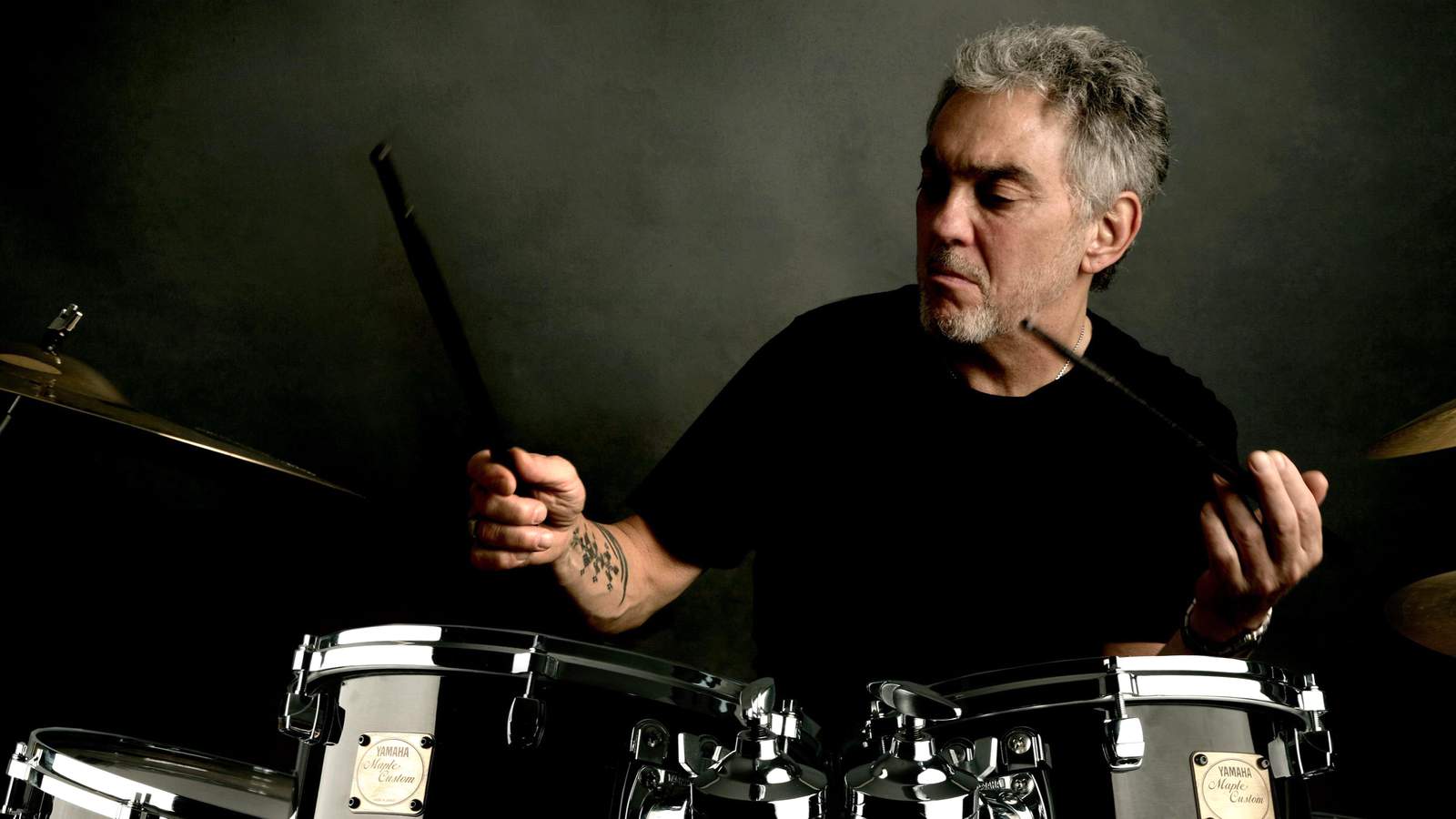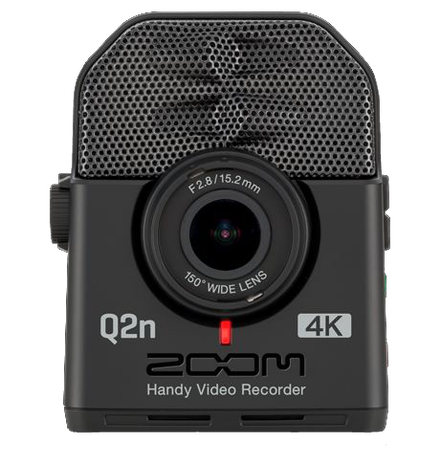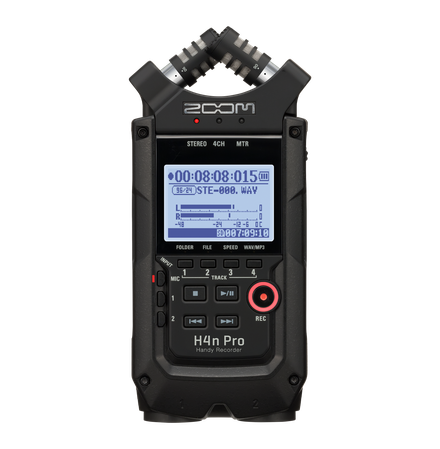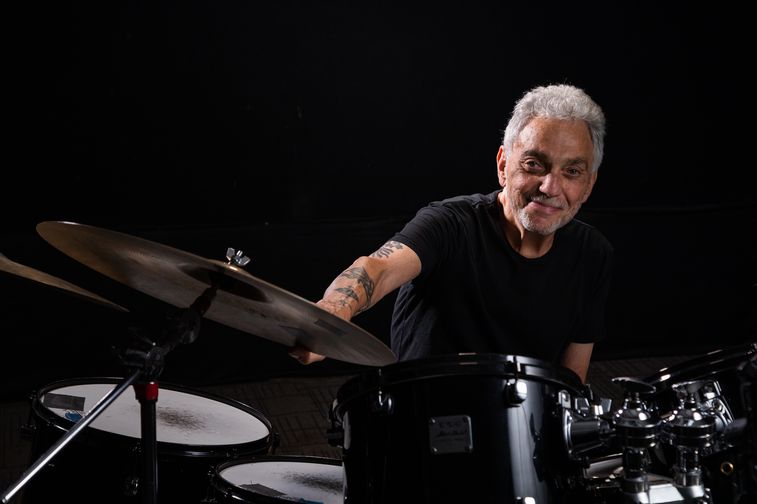
How did you first get started with music?
I had a lot of love and nurturing from my family when I first started playing. My uncle was an inspiration for me. He showed me how to hold the sticks. He would get me to play along to the records and he’d play along with me. It was a great childhood, it was a great way to be a kid. To be able to interact with adults that were paying attention to me and telling me I was doing something good. I got a lot of positive reinforcement from the people that raised me. I’m very grateful to them.
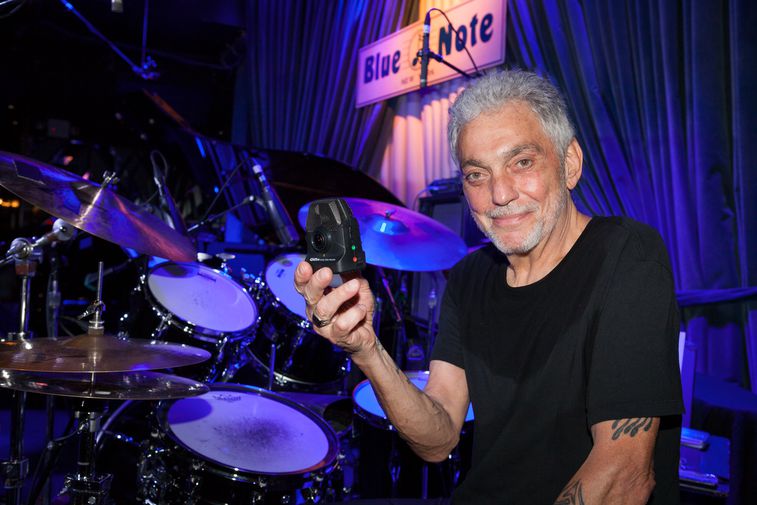
You’re recognized as one of the most influential drummers of all time and inspired many of the world’s top drummers. What do you think it is about your sound and style that’s inspired so many?
I think you’d have to ask them. I don’t know the answer. I know that I try to show up on time. I go in and give it all I got. I don’t hold back. I try to understand what the artist and the producer are looking for musically. And I don’t really want to give up until we get it. So, that’s what I bring when I go to work.
Can you describe your creative approach? What happens between that first idea for a song, and the finished song?
I start thinking about how it feels. How the bass and the bass drum are lining up. Start thinking about the form. Who is going to solo? How long is the solo going to be? Just coming up with a road map for the music that works in that situation. Not everyone can solo on every song. I think about who soloed last and who hasn’t soloed yet. There are a lot of things that go into making those decisions. It’s different for every project.
You’ve created so many legendary and recognizable drum patterns and grooves on the numerous recordings you’ve done. Do you have any personal favorites?
I don’t really do that. My personal favorite is the last thing I did. I try to keep it like that. I don’t try to think about things that I did years ago, or what I’m going to do next. I just try to keep it in the present and do the best I can. The last thing I did is the best thing I did.
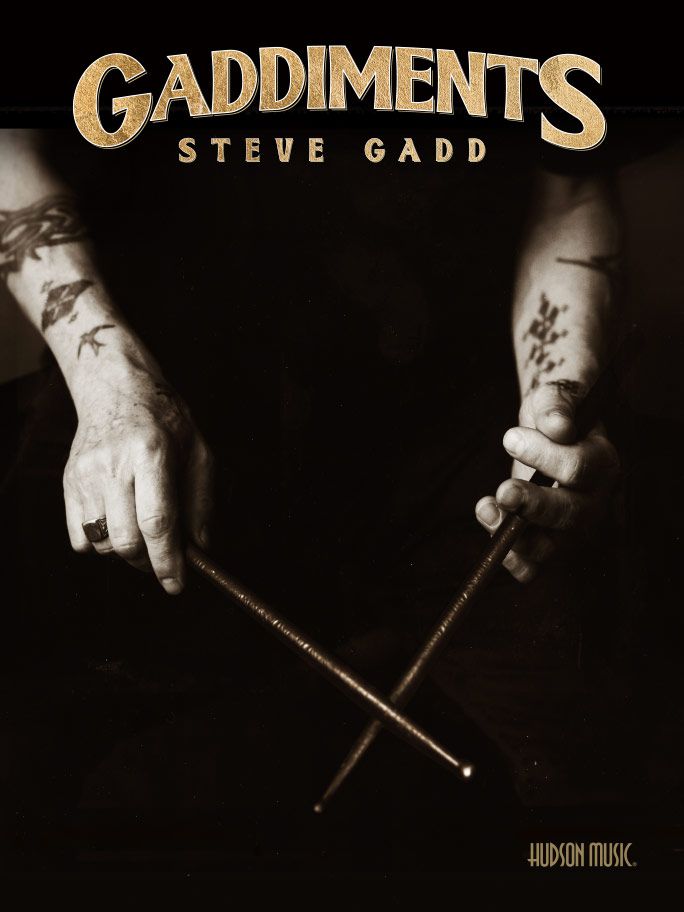
What was the inspiration for your book “Gaddiments”
When the pandemic started, I found I had a lot of time at home. I got a bunch of these sticks with rubber tips all over the house and I just started practicing the rudiments a lot. When I was a kid that was how I started. Now that I had all this time off, I found myself going back to that and it was a lot of fun. And the more I get into it, the more I keep coming up with new ideas and new stickings. I love all of the rudiments, and I love coming up with different combinations of them. Also, just changing the sticking a little bit to create a new pattern. That’s what I’ve been doing since the pandemic started.
All of this lead to “Gaddiments”. I started writing down these exercises that I worked up. I was excited when I started coming up with new things and new ways to do old things. A lot of the joy I get from being a musician is sharing the knowledge with other people. As I keep exploring the rudiments, new things are starting to evolve. Now I think I’m at the beginning of a second book. It’s interesting because I’ve done them one way all my life and I can finally start to do them a little differently. It’s a whole new ballgame.
What are some of the biggest challenges you’ve faced in your career?
One of the biggest challenges is to not go up in my own head and stay up there. Every situation that I’m involved in professionally—whether it’s recording or performing live—it’s a process. Things can make me feel defensive, like I’m doing something wrong. If my first try isn’t exactly what the person wants, I can get a little introverted and up in my own head. “What am I doing wrong?”
That’s a big challenge to not go up or not stay up there. What’s going on up there is just up there. It has nothing to do with what anyone else is feeling. And the longer I stay up there, the more it isolates me from what I’m there to do. Which is to stay out of my own head and stay in the present moment. I do the best I can to give the person what they’re looking for musically and keep my ego out of it. That’s a challenge I have to deal with in different situations on a daily basis.
I don’t like to talk about anything before I’ve heard the music. If you start talking about the music before you’ve heard it, you’ve got nothing to refer to. You’re talking about something that didn’t happen. You’ve created all these things in your mind that it’s not going to be. You’re making it harder on yourself."
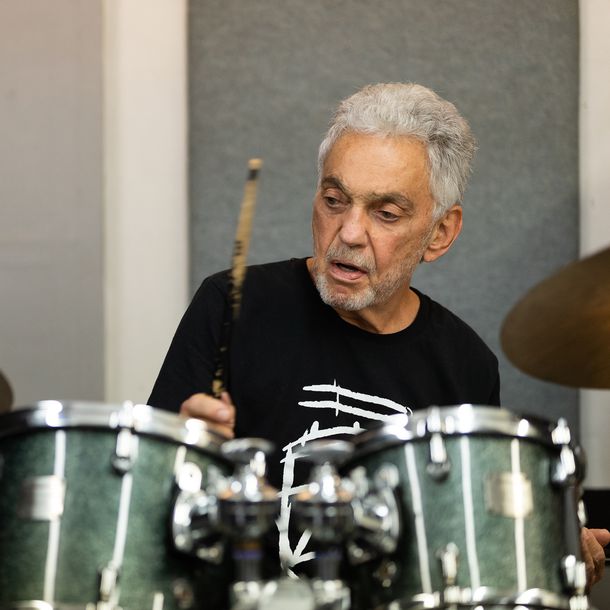
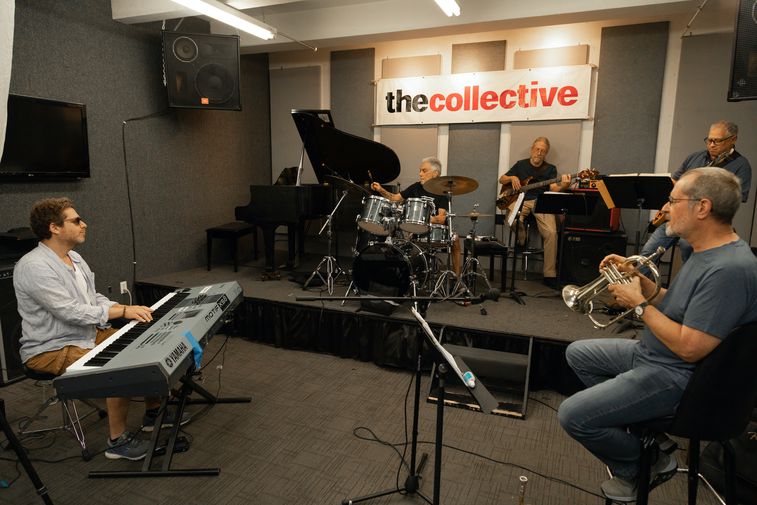
I keep it simple. I listen a couple of times. Then I play it through a couple of times and let them hear what my feelings are naturally. And then we can have a discussion. I’m there to give the producer and artist what they want for their project.
When I’m working with the Steve Gadd Band, I have more decision-making there because it’s my project. I have certain ideas about what I think it should be. But it still has to be diplomatic, I encourage the other musicians to give input. We’re all just trying to get the music where it needs to be.
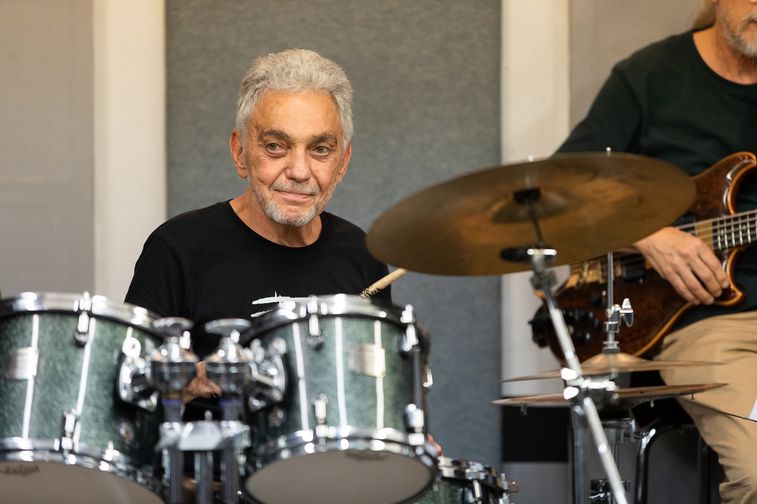
Did you participate in any remote recording sessions during the pandemic?
I did some of that, but I don’t do a lot of remote recording. I was mostly working on the Gaddiments book. I’m not set up to record at my house, so I have to go to a studio for recording sessions. I haven’t really pursued remote. I find other ways to stay busy. We’re all doing similar things. Trying to find ways to stay active. I’m trying to keep myself in shape for when things open up again. I want to stay tuned up technically and creatively. It’s been good because I’ve been coming up with new patterns. I’ve been able to fulfill my need for being close to the instrument. I don’t want to be away from the instrument for too long of a time. I need to stay connected to it, so it doesn’t feel foreign when I go back to it. We’re all trying to do the same thing.
Are there any drummers from the younger generation that inspire you?
A lot of the young gospel drummers are incredible. Being a drummer, that’s where my focus goes when I’m listening to different things. I focus on what the drummers are doing. I learn by listening to other drummers and try to emulate what they do. Or take an idea of theirs and try to understand it and use it myself. That’s the way I learn. It’s not like I have one guy that I’m studying. I like a lot of drummers, and there are a lot of great young musicians out there stretching the envelope, like Gerald Heyward, Aaron Spears, Mark Guiliana, Chris Dave and many others.
If you have it in your heart to play music, do it. Go for it and try to do it the best you can. It’s not about being happy once you get to where you’re going. It’s about trying to be happy on the road to get there."
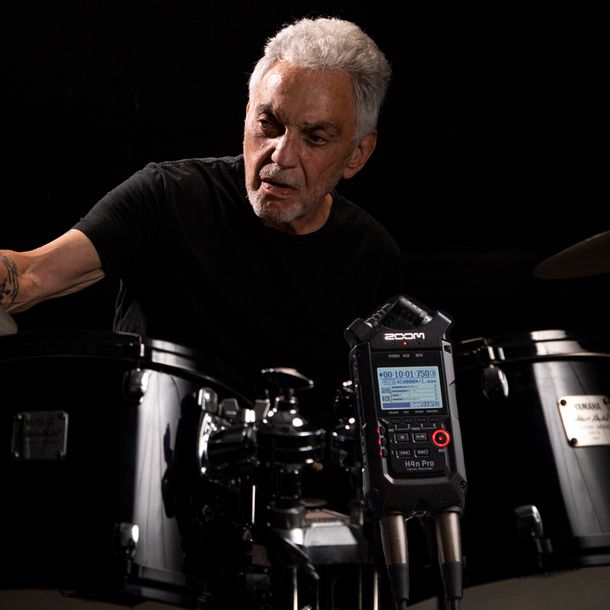
How do you focus on enjoying the journey?
I do whatever I can to keep myself sane. I couldn’t have said before the pandemic that I was going to be reunited with practicing rudiments on a pad. That’s just where I naturally gravitated. Instead of telling myself I should be playing the drum set, I just allowed myself to do that. Because that was where I was enjoying myself. The more I allowed myself to stay there, the more things started to evolve. My technique got better, and creatively things started to happen. I was trying to keep myself and my hands in shape for the next gig. I was also trying to do something that was different from what I had been doing. In terms of playing on the drums and playing on a pad. I just kept with it. Things started to open up. That’s how I did it. I don’t know if there’s a set way. I think everyone has to find their own little thing. You can use people’s ideas as stepping stones and inspiration, but it’s a personal journey.
You have to try to stay connected to the instrument in a way that’s inspiring and not boring. You have to try and stay connected with your friends. You don’t want to isolate. Now with the ways we can communicate online, people have done amazing things like figuring out how to make music with other people over the internet. All of that is good. Just try to stay active and keep your mind musically stimulated. And share the love with your friends. You don’t want to go through this thing alone. We want to go through it together.
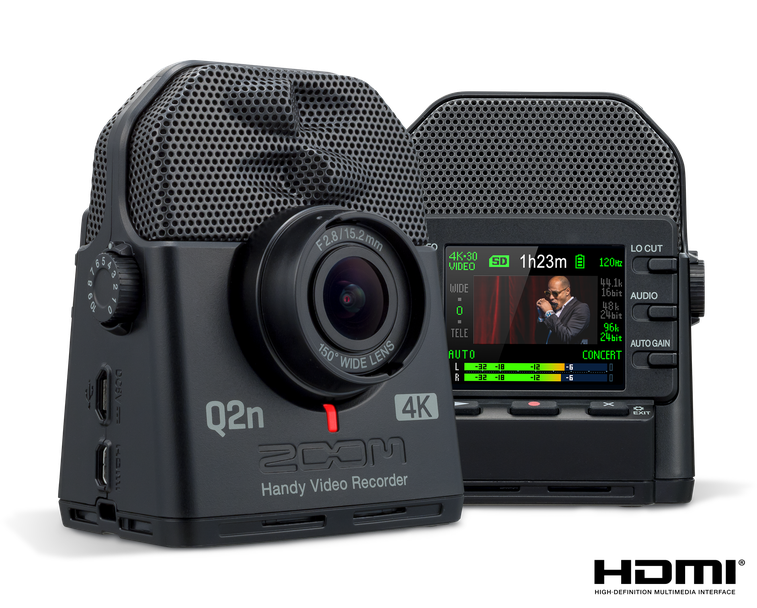
What Zoom products do you use? How does Zoom help you achieve your goals?
I’m using the Q2n-4K camera now. I use it for any online call, for teaching online, for all that stuff. I’m not really a tech guy. I use the technology when I need it but I’m not really interested in the tech thing. Zoom helps me because I can film what I’m doing and share with people and I know the sound quality is going to be great. I use Zoom because I like the company. I like the people in the company and how they think creatively. Their inspiration is to give some great equipment to musicians so you can sound good and look good.
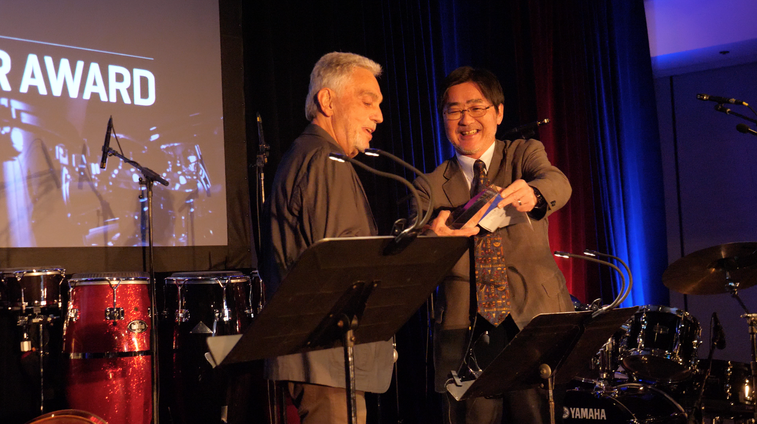
They’ve been very supportive of me personally with the equipment that I use. They always help me out. Everyone is helpful and receptive, supportive on tours that I’ve done. I feel that their products are an extension of their love and what they’re trying to do. I’m very happy to be associated with them. I can’t break down all the technical things with the equipment because that’s not who I am.
Zoom is the only gear I use and it works for everything I need. It can do a lot more than I know how to do with it, but I know it’s always there if I need it and the people are there if I have a problem. That works great for me. Whatever I need, I know that Zoom will be there for me. For that I’m very grateful. I know a lot of musicians that use Zoom gear in different ways, but the one thing in common is that they’re all raving about it.
